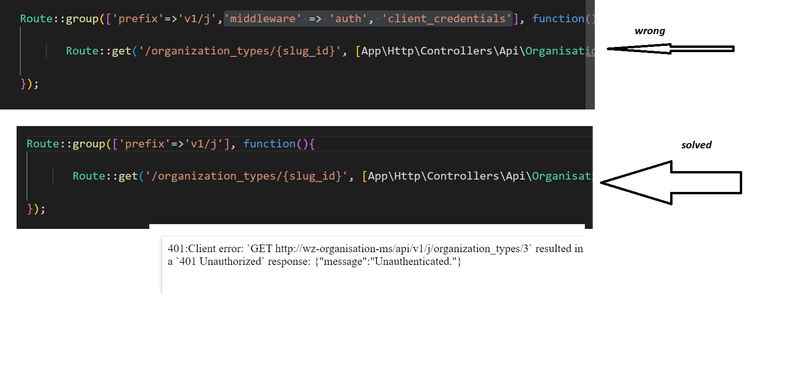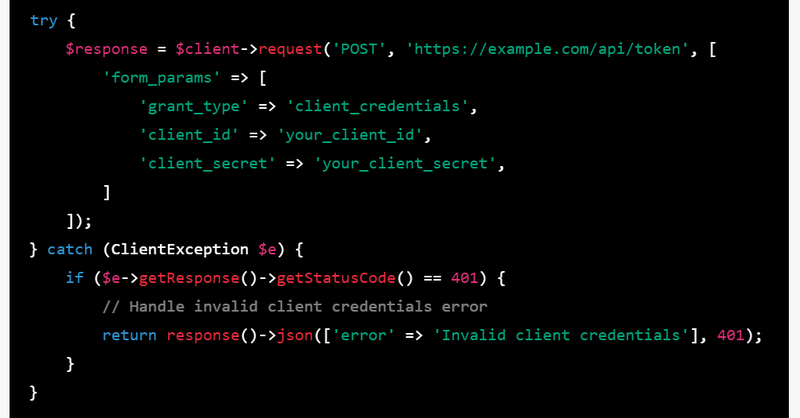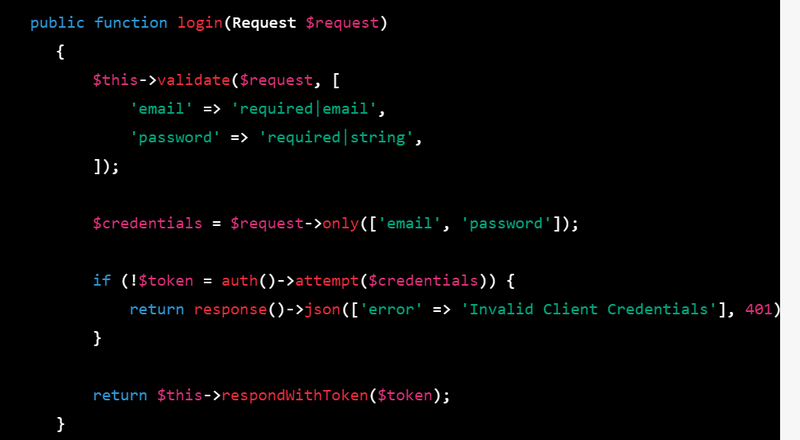laravel-why-am-i-getting-a-401-response-from-passport-in-my-feature-test
retrieving-client-credentials-grant-token-returns-401-unauthorized
always-response-401-unauthorized-for-my-laravel-passport-generated-oauth-2-tok
"{"error":"invalid_client","error_description":"Client authentication failed","message":"Client authentication failed"}"
Solution
if u use 'middleware' => 'auth', 'middleware' => 'client_credentials' in route prefix must
import use Laravel\Passport\Passport
Check client credential in php my admin oauth client table and match it same as present in env
A 401 error with the message "Invalid Client Credentials" in Laravel 9 typically indicates that the client_id and/or client_secret provided in the request are not valid. This error can occur when an application attempts to access a protected resource without providing the correct credentials.
try {
$response = $client->request('POST', 'https://example.com/api/token', [
'form_params' => [
'grant_type' => 'client_credentials',
'client_id' => 'your_client_id',
'client_secret' => 'your_client_secret',
]
]);
} catch (ClientException $e) {
if ($e->getResponse()->getStatusCode() == 401) {
// Handle invalid client credentials error
return response()->json(['error' => 'Invalid client credentials'], 401);
}
}
In this example, a request is being made to the token endpoint using the client_credentials grant type. If the request fails with a 401 status code, the catch block will handle the error and return a JSON response with the message "Invalid client credentials".
Case2
A 401 error with the message "Invalid Client Credentials" typically indicates that the client (e.g. a user or application) is trying to authenticate with an invalid or expired set of credentials, such as an incorrect username or password. In the context of Laravel 9, this error may occur when using the built-in authentication features of the framework, such as the Auth facade or the AuthenticatesUsers trait.
An example of this error in Laravel 9 could occur when a user attempts to login using an incorrect password. The following code snippet shows an example of how the error might be handled in a login controller:
public function login(Request $request)
{
$this->validate($request, [
'email' => 'required|email',
'password' => 'required|string',
]);
$credentials = $request->only(['email', 'password']);
if (!$token = auth()->attempt($credentials)) {
return response()->json(['error' => 'Invalid Client Credentials'], 401);
}
return $this->respondWithToken($token);
}
Here, the attempt method of the Auth facade is used to authenticate the user's credentials. If the credentials are invalid, the method will return false, and the code will return a 401 error with the message "Invalid Client Credentials"
Another solution
run php artisan optimize in both client and server side
php artisan optimize





Top comments (0)